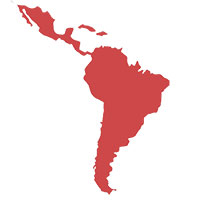No Folly of the Beast
Malcolm J | December 2, 2014.
“For there is no folly of the beast of the earth which is not infinitely outdone by the madness of men.” – Herman Melville, Moby Dick
The 20th UN Conference of the Parties (COP) on climate change, kicks off this week in Lima, Perú. Most attendees at the conference have travelled over an ocean to reach Lima, and nearly all will wear clothing that at some point traveled by container ship. While at the conference, every second breath should be credited to the phytoplankton of the seas, and each piece of discarded plastic risks an ultimate fate in one of the five ocean gyres. Fish from declining populations will be eaten at many of the meals, even as delegates discuss the impacts of climate change on the biosphere. It is impossible to escape how deeply connected humanity is to the ocean. But this reality is not reflected in the current state of climate negotiations.
The ocean plays a vital role in generating oxygen, absorbing carbon dioxide, regulating temperature and feeding humanity. What’s more, coastal regions are poised to contribute to this century’s innovative solutions: from marine aquaculture to offshore wind and tidal energy to wetlands that sequester so-called “blue carbon” and buffer storm surges. Despite their importance, marine topics make only brief appearance on the agendas of many civil society groups, and the oceans lack a dedicated advocate in the climate negotiation process.
What was once a tradition of holding a dedicated Oceans Day at each COP, has also fallen by the wayside. From 2001, the Global Forum on Oceans, Coasts and Islands, held an Oceans Day at each annual COP to ‘raise awareness of the central role of oceans in the global climate process, and the fact that coastal and island communities are at the front line of climate change.’ The last Oceans Day took place in 2011 at COP17 in Durban, South Africa and helped pave the way for serious dialogue around global ocean governance and sustainable development of marine resources. The Ocean Forum is currently working to support Small Island Developing States (SIDS) in their ongoing efforts to adapt to rising sea levels and other oceanic threats. By stepping out of their role focused on raising awareness about the oceans in negotiations, a dead zone formed where only the ocean-minded individuals venture.
Two years later in 2013, Ocean Scientists for Informed Policy (OSIP) landed at COP19 in Warsaw with a two-fold mission: ‘to bring scientific information about oceans to policymakers and to communicate events at the COP to a public audience.’ Their main focus is on the impacts of ocean acidification, a phenomenon that is already triggering a chain reaction in the marine food web, threatening the food security of millions of people. While the science of ocean acidification ocean acidification was presented to the conference, few delegates adopted measures to consider climate change’s ominous cousin.
Another key side-event at Warsaw discussed ocean and coastal adaptation, the economic value of blue carbon, coastal mangroves (which are disappearing at a rate 2-15 times faster than forests), and the role of the ocean as the world’s largest carbon sink (bigger even than forests). The true highlight of the event was a presentation on the impact of climate change on starfish and shellfish populations, from which economists have estimated global economic losses of over US$100 billion.
Yet oceans are unlikely to enjoy such prominence in Lima. It seems that as delegates negotiate texts, many will consider ocean-related impacts as a distant priority below issues like deforestation and renewable energy. For the delegates of the Alliance of Small Island States (AOSIS), who are fighting at the front lines of climate change to keep back the world’s rising waters, the ocean’s bell tolls dangerously loud already. We can learn much from these resilient islanders. Their struggle is the world’s struggle; their urgency should be our urgency. The best hope for the oceans are those with the most to lose. We need to ensure they aren’t outdone by the madness of men.













comment